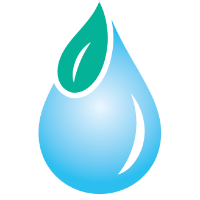Daugherty Water for Food Global Institute

Daugherty Water for Food Global Institute: Faculty Publications
Date of this Version
1-21-2019
Document Type
Article
Citation
2019 The Author(s). Published by IOP Publishing Ltd
Abstract
Understanding how irrigation is used across agricultural landscapes is essential to support efforts to grow more food while reducing pressures on limited freshwater resources. However, to date, few studies have analyzed the underlying spatial and temporal variability in farmers’ individual water use decisions at a landscape scale.Wecompare estimates of irrigation water requirements derived using state-of-the-art remote sensing models with metered abstraction records for 1400 fields over a 13 year period in the US state of Nebraska, one of the world’s most intensively irrigated agricultural regions. Weshow that farmers’ observed water use decisions often diverge significantly from biophysical estimates of crop irrigation requirements. In particular, our findings are consistent with widespread use of water conservation practices by farmers in drought years as an adaptive response to rising irrigation costs and regulatory water supply constraints in these years.Wealso demonstrate that, in any individual year, farmers observed water use exhibits large field-to-field variability, which cannot be explained fully by differences in weather, soil type, crop choice, or technology. Our results highlight the value of using both in situ monitoring and remote sensing to evaluate farmers’ individual water use behavior and understand likely responses to future changes in climate or water policy. Moreover, our findings also demonstrate potential challenges for current efforts in developed and developing countries to apply model-based approaches for field-level water use accounting and enforcement of irrigation water rights.
Included in
Environmental Health and Protection Commons, Environmental Monitoring Commons, Hydraulic Engineering Commons, Hydrology Commons, Natural Resource Economics Commons, Natural Resources and Conservation Commons, Natural Resources Management and Policy Commons, Sustainability Commons, Water Resource Management Commons


Comments
Environ. Res. Lett. 14 (2019) 024004